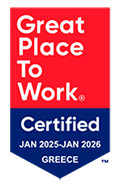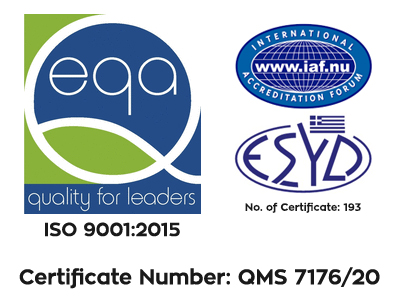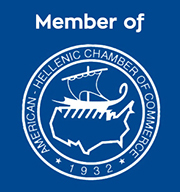Diversity, Equity and Inclusion (DEI)
Diversity, Equity and Inclusion
Diversity, equity, and inclusion also known as DEI, it's an important aspect in creating functional workspaces. Regardless of the history of workplace injustices that marginalizes minority and underrepresented groups, it is the responsibility of every employer and employee to actively champion every individual's rights.
And one way to achieve the aforementioned scenario is by embracing the DEI principle. Diversity, equity, and inclusion are founded on the tenet that people from different walks of life, gender, and religion just to mention a few, can thrive successfully and professionally in an enabling workspace.
Definition of Diversity in a Workspace
Diversity goes beyond hiring a multicultural workforce. A diverse organization takes into account several aspects such as gender, sexual orientation, educational background, age, ethnicity, and the race just to mention a few.
In simple, diversity reflects all the human differences that exist in our community. Every human resource office must conduct comprehensive research on the factors that build up diversity and integrate them into their respective organization. These factors in turn, transform and determine the nature of the business you're running.
What is the Meaning of Equity in a Workplace?
Sometimes people confuse between the terms equity and equality and use them interchangeably. While the two terms may sound similar, there is a significant difference between them.
Workplace equity refers to policies instituted that support inclusion and diversity in an organization. The term is built on the principle of providing fair opportunities to all employees as per their specific needs regardless of their gender, culture, or region.
It is a unique form of equality that does not allocate the same amount of opportunities and resources to everyone. However, those with limited access to the organization's resources, get more support to capitalize on the fair advantage of opportunities distribution within a specific enterprise.
On the other hand, equality let all employees enjoy the same resources in an organization, irrespective of the pre-existing barriers they may face. The aspect dictates that all workers who are at the same level should have an equal distribution of resources, opportunities, and money. By embracing the practice, you stand to build a strong company culture. However, equality doesn't address the issue of unfair status quo or underrepresentation.
What is Inclusion in the Workplace?
Over the last decade, diversity has made great progress in many companies. However, without inclusion, the aspect is meaningless. Diversity on its own cannot address a myriad of problems that surrounds workplace equality and issues such as personal bias. Having a well-integrated and diverse workforce is not a guarantee that every employee will enjoy the same opportunities in your organization.
This begs the question what is workplace inclusion? It is an aspect that ensures that every employee gets the opportunity to grow. Individuals in an inclusive organization feel accepted and valued by their employer and other employees, without undergoing the stress of having to conform.
More importantly, embracing inclusivity is a proven way of giving every employee a voice. Inclusion and diversity help to build a work environment that empowers an employee to achieve their full potential and meet their specific growth goals while taking into account that every individual is unique in a way. Inclusion makes everyone relevant to an organization.
Why is DEI Important?
Many companies are donating towards diversity and equity causes. Most of them are embracing practices that reflect their inclusivity goals!
Boosts productivity and increases revenue
Conclusive studies show that diversity is a precursor to increased productivity and revenue generation. This is obvious as we live in a diverse world and if you intend to sell globally, you will encounter a diverse customer base. Additionally, the comfort that comes with inclusion and diversity makes employees more innovative.
Grows company reputation
A good number of media outlets and other organizations are championing DEI practice in workplaces. They have even tailored annual awards for diverse companies to compete for. Through such programs, companies that win the awards stand a better chance of building solid reputations.
Improved innovations
Unlike homogenous companies, organizations that employ the DEI approach are more innovative. A diverse workforce provides a good platform that acts as a breeding ground for new ideas. DEI also helps employees overcome their personal biases and prejudice and work together with their colleagues for better outcomes.
Boosts employee satisfaction
By erecting a strong organizational culture, you get to enjoy employee satisfaction, retention, and increased engagement. Statistics show that empowered employees are more innovative, productive, and imaginative.
Our Commitment to Achieve DEI in our Company
At Terracom, we understand the importance of integrating diversity, equity, and inclusion (DEI) principles in our company. Since 1999, we've put in the work to ensure our employees are satisfied and empowered in our workplaces to help them achieve their maximum potential.
And being an IT business, we've hired a diverse workforce including but not limited to those with mobility problems who work exceptionally remotely. We understand that to achieve full diversity, equity, and inclusion is a process, and that's why every day we strive to make our organization more accommodating for individuals from all walks of life.
Today, Terracom promotes diversity by hiring people all over the world and helping them achieve their career goals. With regard to our relationships with partners and clients all over the world, we have implemented a multicultural policy in all aspects of our management and combine different people in a constantly evolving work environment.
To learn more about our company, contact us.

© Copyright 2025 | All Rights Reserved | Terracom S.A.





